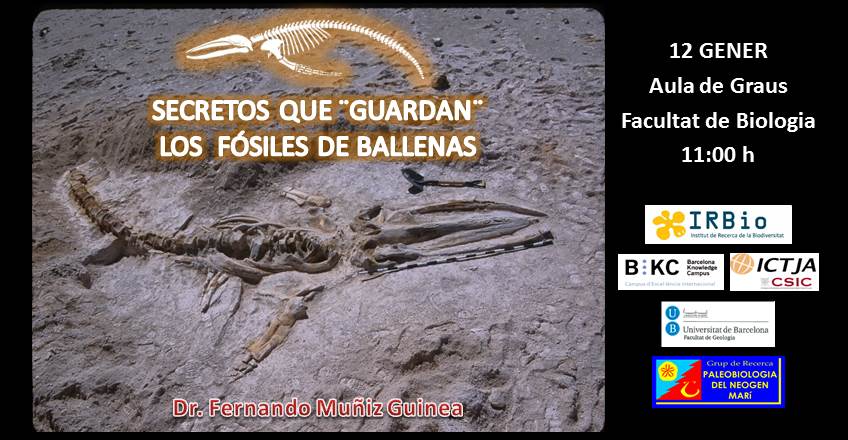Conference: SECRETS THAT "KEEP" FOSSILS OF WHALES

SECRETS THAT "KEEP" FOSSILS OF WHALES
Dr. Fernando Muñiz Guinea
Studies of ecological role played by existing bodies of whales on the seafloor are providing a wealth of information about the different communities that interact in this restricted peculiar habitat: scavengers, opportunists, and epi- sulfofílicos or endolitobiontes. In varying degrees, these interactions can be set in the fossil record from the study of taphonomic processes and ichnological evidence. The first involve both pre-burial (dislocation, degradation and conservation of the skeleton and associated fauna) as after him. The second concern bioerosion traces that can be recognized in the bones and the surrounding bioturbation sediment thereto. The intersection of these three datasets (ecology, taphonomy and ichnology) allow us to reveal those "secrets that keep the whale fossils".
Day: January 12, 2015
Time: 11h
Location: Aula de Graus. Faculty of Biology
Dr. Fernando Muñiz Guinea
Studies of ecological role played by existing bodies of whales on the seafloor are providing a wealth of information about the different communities that interact in this restricted peculiar habitat: scavengers, opportunists, and epi- sulfofílicos or endolitobiontes. In varying degrees, these interactions can be set in the fossil record from the study of taphonomic processes and ichnological evidence. The first involve both pre-burial (dislocation, degradation and conservation of the skeleton and associated fauna) as after him. The second concern bioerosion traces that can be recognized in the bones and the surrounding bioturbation sediment thereto. The intersection of these three datasets (ecology, taphonomy and ichnology) allow us to reveal those "secrets that keep the whale fossils".
Day: January 12, 2015
Time: 11h
Location: Aula de Graus. Faculty of Biology